MercoPress. South Atlantic News Agency
Stories for April 2013
-
Tuesday, April 2nd 2013 - 02:42 UTC
Uruguay will go ahead with the re-gasification plant “with or without Argentina”
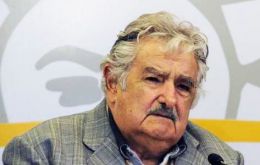
President Jose Mujica confirmed that the project for the construction of a liquid gas re-gasification plant in the River Plate coast, originally planned with Argentina, “will go ahead with of without the Argentine government”.
-
Tuesday, April 2nd 2013 - 02:37 UTC
Brazil postpones until next year increases in car sales taxes to help the economy
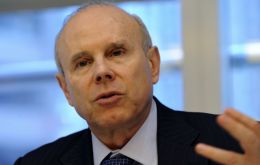
The Brazilian government postponed until next year increases in taxes on the sale of cars and trucks in a bid to stimulate demand for manufactured goods and spur economic growth, announced the Finance Ministry.
-
Tuesday, April 2nd 2013 - 02:18 UTC
Malvinas invasion recalled by President Cristina Fernandez in Puerto Madryn
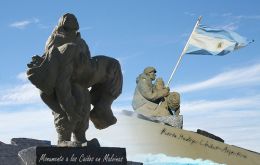
Argentine president Cristina Fernandez will lead on Tuesday the commemorations of the 31st anniversary of the Falklands/Malvinas war in the Patagonian city of Puerto Madryn.
-
Monday, April 1st 2013 - 19:56 UTC
Brazil’s power companies report huge losses in 2012 forced by cheaper electricity bills

Latinamerica’s largest power company Eletrobras, managed by the Brazilian government reported losses equivalent to 3.4bn dollars last year which were mostly attributed to a bill promoted by the administration of President Dilma Rousseff ro reduce electricity bills both for industry, agriculture and home consumption.
-
Monday, April 1st 2013 - 19:15 UTC
Chile, Peru, Colombia and Mexico agree to ‘zero tariff’ for 90% of inter-trade
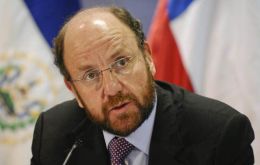
Chile, Peru, Colombia and Mexico plan to sign an accord liberalizing 90% of trade among the group when they meet at the coming Pacific Alliance summit scheduled for May 23 in Colombia announced Chilean Foreign minister Alfredo Moreno.
-
Monday, April 1st 2013 - 10:15 UTC
Argentine central bank says it has enough reserves to contain the run on the US dollar

With insistent rumours of imminent measures to try and control the value of the US dollar in Argentina, Central Bank Governor Mercedes Marcó del Pont, stressed that the country has more than 40 billion dollars in reserves “to manage the foreign exchange market avoiding sharp changes”.
-
Monday, April 1st 2013 - 10:08 UTC
Paraguayan president visits Spain and the OAS where he has ample support
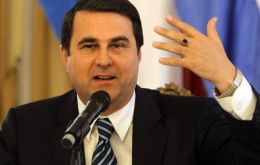
Paraguay’s president Federico Franco has arrived in Madrid, a special guest of his peer Mariano Rajoy with whom he will be holding talks at the Moncloa Palace. Rajoy is particularly interested in showing his support for President Franco and Paraguay that have been suspended from Mercosur and Unasur because of the removal by Congress, following political impeachment of Fernando Lugo.
-
Monday, April 1st 2013 - 10:03 UTC
Sao Paulo will host 1.500 political and business leaders from Germany and Brazil

Germany is keen to boost its already substantial investment in Brazil ahead of the 2014 World Cup and the 2016 Rio summer Olympics, the new president of the Brazil-Germany Chamber of Commerce said.
-
Monday, April 1st 2013 - 09:55 UTC
Venezuela auctions dollars; value is estimated at double the official rate
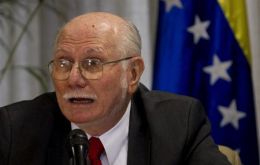
Venezuelan government foreign currency auction for local importers has triggered de-facto currency devaluation, the second in less than 50 days, analysts said. Venezuela has had strict currency exchange controls since 2003 in an attempt to halt capital flight, under which the government sold limited amounts of foreign currency at an official rate.
-
Monday, April 1st 2013 - 09:46 UTC
Cyprus depositors over 100.000 Euros could lose 60% of their savings
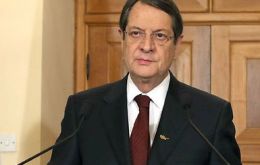
Bank of Cyprus depositors with more than 100.000 Euros could lose up to 60% of their savings as part of an EU-IMF bailout restructuring move, officials say. The central bank says 37.5% of holdings over 100.000 Euros will become shares.
